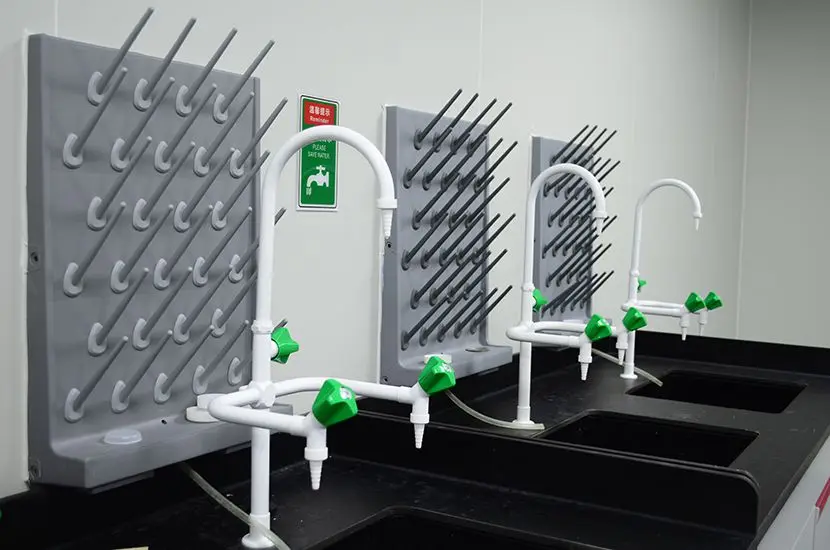
Adhesive Biocompatibility Testing
biocompatibility is a general term used to describe the compatibility of materials with living tissue or living systems. Materials that are non-toxic, non-harmfUL, or do not provoke physiological reactions in the body or body fluids are consideRED biocompatible, which is highly valued by medical device engineers. In simple terms, biocompatibility testing is not aimed at proving cheMICal compatibility, but rather at confirming that the material or device does not trigger immune responses.
Selecting the right materials during the design process gives manufacturers greater confidence in FDA approval. Bioreactivity testing is one such process used to determine suitability and safety. There are two primary tests to determine whether a material is biocompatible.
USP VI Biocompatibility Testing
Historically, the standards were established by the United States Pharmacopeia (USP), a non-profit organization focused on materials used in pharmaceuticals, medical technologies, food ingredients, and medical devices. These standards classify materials into six categories based on the specific use of the product and its contact duration with the patient (short-term, long-term, or permanent).
It includes three types of reactivity assessments, usually conducted in mice or rabbits to ensure accuracy:
1. Acute Systemic Toxicity (Systemic Injection) Test: Measures toxicity and irritation when the compound sample is ingested, applied to the skin, or inhaled.
2. Intracutaneous Test: Measures toxicity and local irritation when the sample comes into contact with live subcutaneous tissue (specifically the tissue that medical devices will contact).
3. Implant Test: Measures toxicity, infection, and irritation when the compound is implanted in the test animal’s body for several days.
Adhesives and sealants that meet this standard are typically very safe and suitable for use in medical devices. However, passing the USP VI test does not guarantee biocompatibility in every application. It is simply strong evidence that the material used is of high quality and low toxicity.
ISO 10993 Biocompatibility Testing
To standardize biological evaluations of medical devices globally, the International Organization for Standardization (ISO) has developed ISO 10993, a set of standards that outlines the categories, tests, and methods used for determining the biological evaluation of materials used in medical devices.
The ISO strategy classifies medical devices based on the type of human contact (surface devices, external communication devices, and implantable devices) and contact duration (limited, prolonged, and permanent). For each resulting device category, ISO provides a set of recommended evaluation tests. Typical tests include:
- ISO 10993-4 Hemolysis
- iso 10993-5 Cytotoxicity
- iso 10993-6 Implantation (14 days)
- iso 10993-10 Intracutaneous: Sensitization and Irritation
- ISO 10993-11 Systemic Toxicity
In general, adhesives and sealants do not need to pass all ISO tests. However, they are expected to pass cytotoxicity testing. Cytotoxicity testing is a rapid, standardized, sensitive, and inexpensive test to determine whether the adhesive has any adverse effects on mammalian cells. It involves cultivating cells in vitro and systematically exposing them to the material in question to see if any reactions or signs of toxicity appear over the course of several days.
In conclusion, since the ISO system incorporates USP testing methods as part of a broader and more stringent strategy, meeting ISO standards represents a higher level of biocompatibility than meeting the USP VI standard.
JJR Laboratory in China offers biocompatibility testing and evaluation services. Feel free to inquire for more information.
Email:hello@jjrlab.com
Write your message here and send it to us
 Cost of U.S. FDA CFR 21 177.2600 Test Report
Cost of U.S. FDA CFR 21 177.2600 Test Report
 How much does the IP44 Compliance Test cost
How much does the IP44 Compliance Test cost
 What is LFGB Test
What is LFGB Test
 What does LFGB certified mean?
What does LFGB certified mean?
 Weee authorised representative germany
Weee authorised representative germany
 Where to Apply for 2026 Air & Sea Transport Ce
Where to Apply for 2026 Air & Sea Transport Ce
 Guide to IEC Test Reports for Lighting Exports
Guide to IEC Test Reports for Lighting Exports
 IEC/EN 62471 and IEC/EN 62778 (Photobiological Saf
IEC/EN 62471 and IEC/EN 62778 (Photobiological Saf
Leave us a message
24-hour online customer service at any time to respond, so that you worry!




